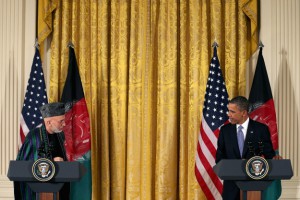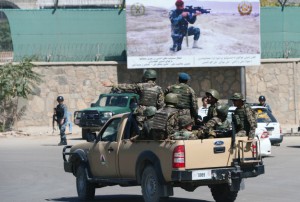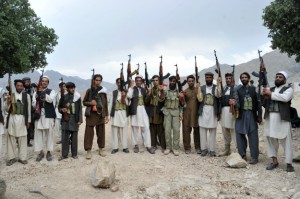
使用谷歌翻译在下一列的顶部。
गूगल अगले स्तंभ के शीर्ष पर अनुवाद का प्रयोग करें.
Google sonraki sütunun üstünde Çevir kullanın.
Используйте Google Translate на вершине соседней колонке.
گوگل اگلے کالم میں سب سے اوپر ترجمہ کا استعمال کریں.
The U.S.-Afghan game of “Chicken”
Ioannis Koskinas
Foreign Policy, 1 August 2013

The game of “Chicken” typically involves two drivers, with cars on a converging course, daring one another to either swerve out of the way or risk a head-on collision. Ideally, one driver swerves and the other wins. The danger, of course, is that both drivers will believe that the other will swerve first and they will end up colliding. In this worst-case scenario, the size of the vehicle and its capacity to absorb the impact are key.
In an Afghan context, the U.S. and Afghan governments are on a collision course in a number of areas and unless cooler heads can prevail, the eventual crash will be devastating, yet totally uneven. For the United States, its international credibility will be undoubtedly damaged; but for the Afghan government, the fallout will be disastrous, and signal the beginning of the end for this period of relative progress and prosperity. Two prime examples of the stakes are the Bilateral Security Agreement (BSA), which will determine the size and shape of the U.S. mission post 2014, and the tussle over taxing U.S. government contractors supporting military operations in Afghanistan.
Following the ill-choreographed opening of the Taliban political office in Qatar, Afghan President Hamid Karzai put the BSA on pause. Even though U.S. officials were quick to admit that the Doha event was embarrassing and not what they had intended, they also made it clear that they had acted with Karzai's blessing. That really should have been the end of it and the negotiations should have resumed.
Karzai's decision to halt the BSA talks was yet another attempt to challenge the United States when Afghan sovereignty was on the line. But with the negotiations still stalled, his move may prove to be a pyrrhic victory. One of the unintended consequences of his decision is that a “zero option” (keeping no U.S. forces in Afghanistan after 2014), which had little support in Washington and in NATO-member capitals, is now being considered in earnest.
Continue reading “Ioannis Koskinas: The U.S.-Afghan game of “Chicken””








